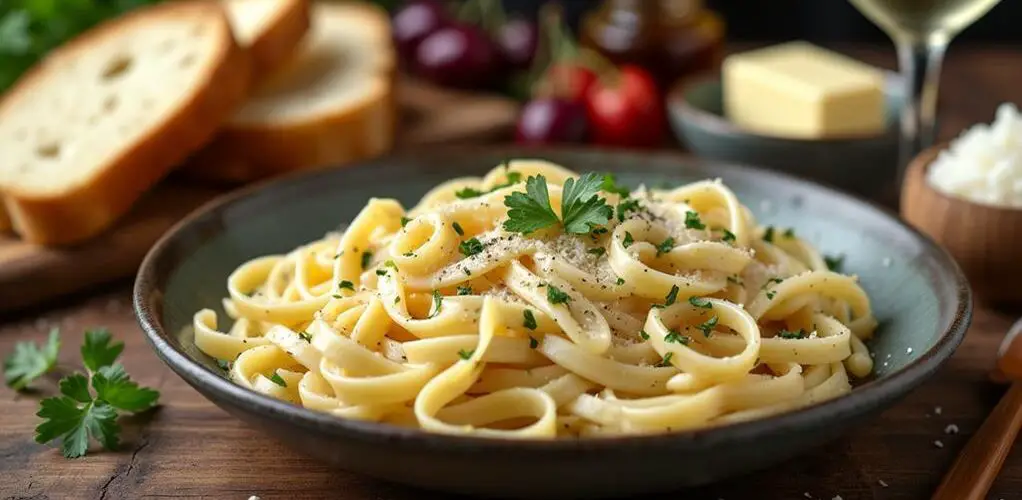
To successfully adhere to a ketogenic diet, it is essential to avoid foods high in carbohydrates, as they disrupt ketosis. Refined carbs such as white bread and starchy vegetables like potatoes should be excluded. Alcoholic beverages, especially beer and sugary cocktails, are high in carbs and can hinder ketosis. Sugary sweeteners like honey and maple syrup push carbohydrate intake beyond permissible limits. High-carb fruits such as bananas and grapes can raise blood glucose levels. Ultimately, sugary sodas contain excessive carbs and offer no nutritional value, impeding progress. By focusing on low-carb alternatives, one can maintain effective ketosis.
Key Takeaways
- Refined carbs like white bread and pasta are too high in carbohydrates for a keto diet.
- Alcoholic beverages such as beer and sweet wines contain excessive carbs that disrupt ketosis.
- Sugary sweeteners, including honey and maple syrup, exceed daily carb limits.
- High-carb fruits like bananas and grapes can raise blood glucose levels significantly.
- Sugary sodas contain high sugar content that hinders ketosis and offers no nutritional value.
Refined Carbs
Refined carbohydrates, including white bread, pasta, and rice, are significant sources of high carbohydrate content that can interfere with the metabolic state of ketosis essential for a ketogenic diet.
White bread, for example, contains approximately 13g of carbohydrates per slice, while a single serving of cooked pasta contains around 33g. These carbohydrate levels are considerably high for those adhering to a ketogenic diet, which typically restricts daily carb intake to between 20-50g.
Additionally, white flour tortillas can contain up to 36g of carbs per serving, making them unsuitable for maintaining ketosis. Even whole grain crackers that appear healthy can contain excessive carbs, thus disrupting ketosis.
Starchy vegetables like potatoes, which can have up to 37g of carbs per medium-sized potato, also pose a challenge for keto dieters aiming to stay within their daily carb limits.
Conversely, alternatives such as cauliflower rice and leafy greens provide lower carbohydrate options that help sustain ketosis.
While whole grains and processed snacks might seem like healthier choices compared to refined carbs, their carbohydrate content can still disrupt ketosis.
Consequently, it is vital to carefully monitor and select foods that align with the strict carbohydrate restrictions of a ketogenic diet to guarantee its effectiveness.
Alcoholic Beverages
Alcoholic Beverages
While monitoring carbohydrate intake from foods like refined carbs is paramount on a ketogenic diet, it is equally important to be mindful of the carbohydrates present in alcoholic beverages. Many traditional alcoholic drinks, such as beer and mixed cocktails, are high in carbohydrates.
For instance, a standard beer can contain approximately 13-20 grams of carbs per serving, which can quickly exceed the daily carb limit essential for maintaining ketosis. Additionally, the types of fats consumed in conjunction with alcohol can influence cholesterol levels, adding another layer of complexity to dietary management.
Cocktail alternatives such as sweet wines and sugary mixed drinks pose an even greater risk, with some containing upwards of 30 grams of carbs per serving. This level of carbohydrate intake can disrupt the metabolic state of ketosis, making these beverages particularly unsuitable for a ketogenic diet.
Even low carb beers and hard liquors, while lower in carbs, can still impact ketosis if consumed excessively, as the body prioritizes metabolizing alcohol over fats.
For those seeking to enjoy alcoholic beverages while adhering to a keto diet, opting for sugar-free sodas mixed with spirits can offer a lower-carb alternative, typically containing zero carbs.
Nonetheless, it is vital to monitor alcohol intake to avoid potential weight gain and maintain the metabolic state of ketosis.
Sugary Sweeteners
When adhering to a ketogenic diet, it is essential to avoid sugary sweeteners due to their high carbohydrate content. Sugary sweeteners such as honey, maple syrup, and agave syrup are natural sweeteners that can greatly impact daily carb limits. For instance, honey contains approximately 17 grams of carbs per tablespoon, making it a poor choice for those trying to maintain ketosis. Similarly, maple syrup and agave syrup are concentrated sugars that can cause blood sugar spikes, disrupting the metabolic state necessary for a ketogenic diet.
Sweetened dairy products, like flavored yogurts, are also problematic as they often contain 20 grams or more of carbs per serving. These carbohydrates can quickly accumulate, making it challenging to stay within keto guidelines. Instead, individuals on a ketogenic diet should consider using sugar substitutes such as stevia and erythritol. These low-carb sweeteners provide the necessary sweetness without greatly affecting blood sugar levels.
Additionally, opting for heavy cream and unsweetened almond milk over sweetened dairy products can help maintain the desired low-carb intake while still providing richness and flavor.
| Sweetener Type | Carb Content (per tbsp) | Suitable for Keto |
|---|---|---|
| Honey | 17 grams | No |
| Maple Syrup | 13 grams | No |
| Agave Syrup | 16 grams | No |
| Stevia (sugar substitute) | 0 grams | Yes |
High-Carb Fruits
Among the various food groups that can disrupt ketosis, high-carb fruits are particularly notable. Fruits like bananas, which contain approximately 24 grams of carbs each, pose significant dangers to those adhering to a ketogenic diet. Consuming such fruits can quickly raise blood glucose levels, effectively halting ketosis—a metabolic state vital for the success of this diet.
Additionally, ongoing adherence to a ketogenic diet supports steady blood sugar levels, with meta-analysis showing a significant reduction in serum triglycerides and improved metabolic health.
Similarly, grapes are another high-carb fruit that can be problematic. With around 26 grams of carbs per cup, grapes can easily surpass the daily carbohydrate limit recommended for keto dieters. For those seeking to maintain ketosis, considering grape alternatives like low-carb fruits is important.
Mangoes also present a challenge for keto adherence, with roughly 25 grams of carbs per medium-sized fruit. This high carbohydrate content can disrupt the ketogenic state, making it advisable to avoid mangoes.
Apples, containing around 19 grams of carbs each, should also be consumed sparingly or excluded from a keto meal plan.
To maintain ketosis, opting for low-carb fruits such as raspberries, which have only about 1.7 grams of net carbs per 1/4 cup, is a far better choice. These alternatives help guarantee that carbohydrate intake remains within the strict limits necessary for a successful ketogenic diet.
Sugary Sodas
Just as high-carb fruits can disrupt ketosis, sugary sodas represent another significant obstacle for individuals adhering to a ketogenic diet. A single 12-ounce can of Coca-Cola contains approximately 39 grams of sugar, far surpassing the daily carbohydrate limit for those on a keto regimen. Such high sugar content causes rapid spikes in blood sugar levels, which hinders the body's ability to enter or maintain ketosis, an important metabolic state for this diet.
The health effects of regular sugary soda consumption extend beyond carb intake. These beverages offer zero nutritional value, adding empty calories without essential nutrients. This is counterproductive for individuals aiming to improve their health through a ketogenic lifestyle. Additionally, the frequent intake of sugary sodas may contribute to various health issues such as obesity, diabetes, and metabolic syndrome.
For those seeking soda alternatives, sugar-free sodas may appear to be a viable option. However, they often contain artificial sweeteners that could influence appetite and cravings. As a result, moderation is important.
A more suitable choice would be unsweetened sparkling water infused with natural flavors, providing a revitalizing beverage without the carbs associated with sugary sodas. This option aligns better with the principles of a ketogenic diet and supports overall health.
Frequently Asked Questions
What Foods Are Not Allowed on Keto?
Foods prohibited on a keto diet include grains, sugary foods, high-carb fruits, starchy vegetables, and processed foods. Keto myths often overlook hidden sugars in these items, which can disrupt ketosis and impede nutritional goals.
What Foods Can You Eat Unlimited Amounts of on Keto?
On a keto diet, you can consume unlimited amounts of non-starchy vegetables and leafy greens due to their low carb content. Additionally, high-fat foods such as avocados and olives, and protein-rich meats and fish, make excellent low carb snacks.
What Are the Top 10 Keto Foods?
When considering keto meal planning, the top 10 keto foods include fatty cuts of meat, low-carb vegetables, high-fat dairy, nuts and seeds, and berries. These options provide essential nutrients and low carb snacks suitable for maintaining ketosis.
Can I Eat a Banana on Keto?
Consuming bananas on a ketogenic diet is inadvisable due to their high carbohydrate content. Instead, consider banana alternatives such as keto fruits like berries, which provide essential nutrients while maintaining a low carbohydrate profile suitable for ketosis.
Conclusion
To sum up, adherence to a ketogenic diet necessitates the exclusion of certain food categories to maintain ketosis and achieve desired metabolic outcomes. Refined carbohydrates, alcoholic beverages, sugary sweeteners, high-carb fruits, and sugary sodas are detrimental due to their high carbohydrate content, which can disrupt ketosis. Eliminating these items aligns with the core principles of a ketogenic diet, promoting effective carbohydrate restriction, improved insulin sensitivity, and enhanced fat utilization for energy. Nutritional vigilance is essential for optimizing the benefits of a ketogenic regimen.
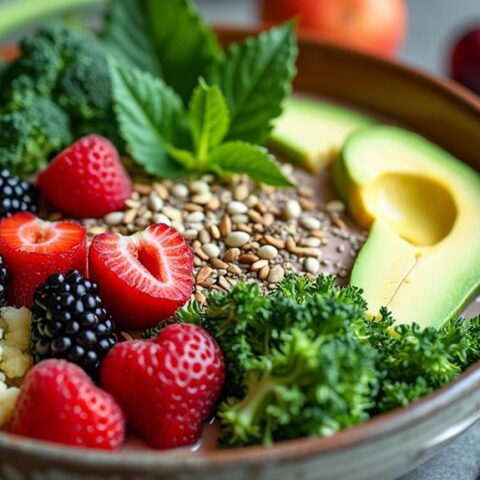
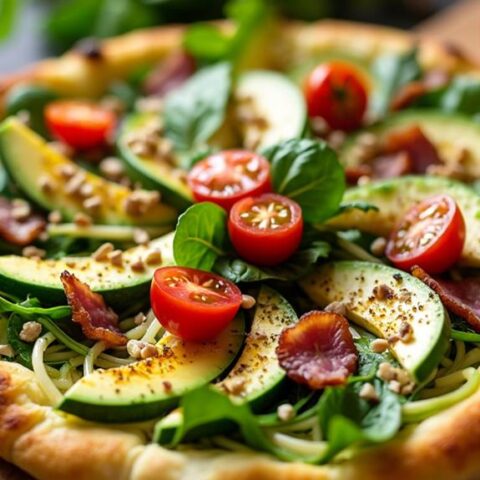
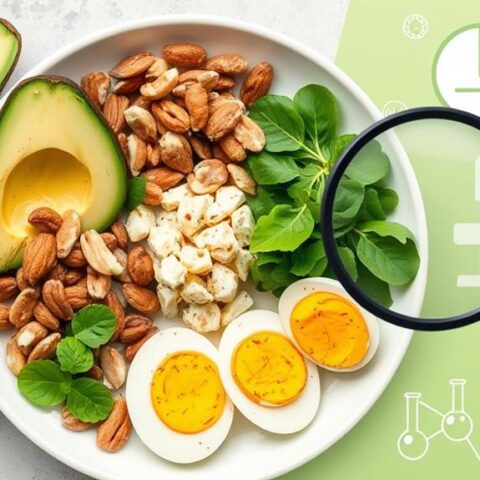
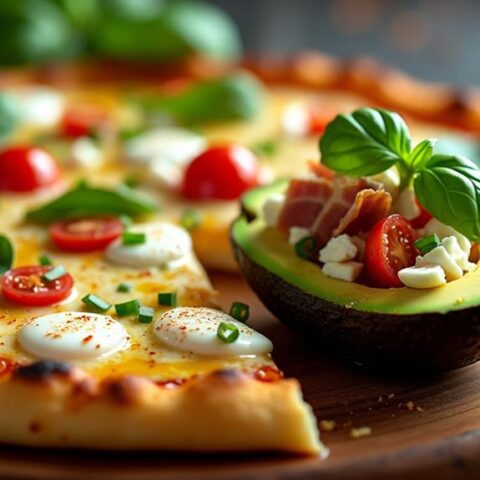
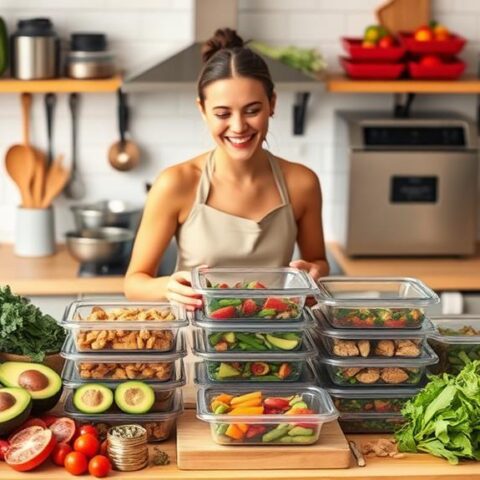
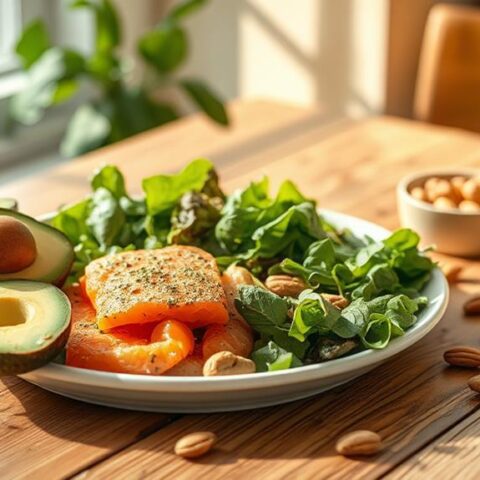




No Comments